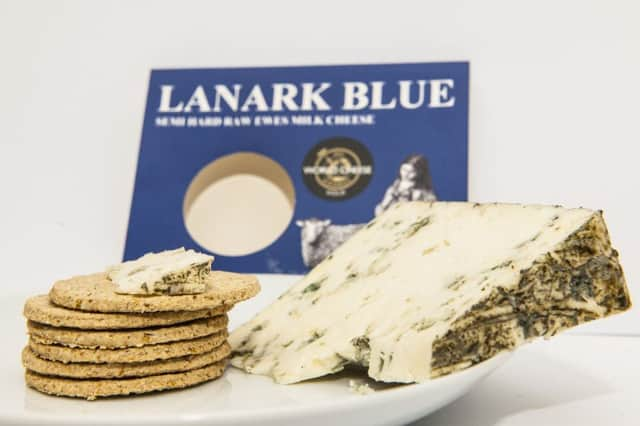Cheese maker '˜did not test for E.coli'


Errington Cheese owner Selina Cairns said her firm did not carry out spot checks on the raw milk used in its cheeses to detect E.coli 0157.
The company was linked to the outbreak of the disease in 2016 in which the girl died.
Advertisement
Hide AdAdvertisement
Hide AdNo traces of E.coli 0157 were found in cheeses made by Errington, but other types of the bacteria were which led food safety agencies naming the firm’s Dunsyre Blue as the source of the outbreak.
Following an investigation, the Crown Office said there would be no criminal proceedings because of a lack of evidence linking the firm to the death of the young girl, who was from Dunbartonshire.
A range of Errington products are made from unpasteurised milk on their farm in Carnwath, Lanarkshire, and environmental workers seized batches of their Lanark Blue and Corra Linn cheeses as a result of the 2016 outbreak.
The firm is currently locked in a battle with South Lanarkshire Council, which is attempting to have cheese produced by the manufacturer declared unfit for human consumption and destroyed.
A civil hearing at Hamilton Sheriff Court heard Mrs Cairns, 38, say that there was conflicting guidance about the need to test for the bug and she had been advised it was not necessary.
She said: “South Lanarkshire Council and Food Standards Scotland said I should have been testing for it and I am obviously testing for it now.
“I accept in hindsight it might have been sensible to have tested for it every six months, but I’m not really quite sure how that would have helped.
“In retrospect it’s quite easy to look at things differently. I know a lot of cheese makers in the UK and none of them were testing for E.coli 0157 before the summer of 2016.”
Advertisement
Hide AdAdvertisement
Hide AdMrs Cairns also said that since the outbreak, the company had changed the labelling of their raw milk cheeses to include warnings that they are not safe to eat for children, pregnant women and the elderly.
However, she said she had no control over whether the cheeses were eaten by children after they had been sold to retailers.
She added: “I can’t control what people do with it after the point it leaves me. In most delicatessens, customers speak to the person behind the counter.”
The hearing before Sheriff Robert Weir continues.